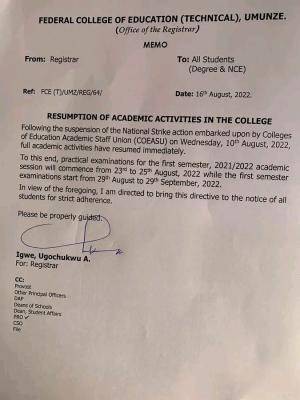
Prof. Festus Iyayi, who died in a road accident on Tuesday, was a committed promoter of a just social system
Death hit the Nigerian academia and the literati hard on Tuesday as non-conformist scholar and writer, Prof. Festus Iyayi, passed away in a road accident.
The death of the one-time president of the Academic Staff Union of Nigerian Universities and winner of the Commonwealth Writers Prize occurred about seven months after the country lost another legendary writer, Prof. Chinua Achebe.
While it had also lost some other writers – including Larinde Akinleye and Femi Fatoba – and many other people in road crashes, the violent circumstance of Iyayi’s death may also remind followers of African literature of that of Ghanaian writer Kofi Awonoor-Williams, who was killed in Kenya by terrorists in September this year.
But what many would find instructive is the fact that Iyayi died in the course of prosecuting the battle in which ASUU has engaged the Federal Government, fighting for the revitalisation of the university system, in the past four months. He was on his way to Kano, alongside other members, where they wanted to attend a congress that would take a decision on the possibility of calling off the ASUU strike.
People who believe in the prophetic power of writers may thus find cause to, in retrospection, attach more importance to one of the popular statements from Iyayi’s novel, Heroes — “… those who carry the cross for society always get crucified in the end …”
Yet, the fact that the bus that Iyayi and co. were said to have been hit by a car in the convoy of Kogi State Governor, Idris Wada, has compounded the anger and frustration of many Nigerians who are lucky enough to be living – and not dead – witnesses to the recklessness that convoys of many political office holders display.
Reacting to the news of Iyayi’s death, the President of the Association of Nigerian Authors, Prof. Remi Raji, says the development is a sad commentary on not just the contradictions in the country’s educational system but also manifestations of political recklessness.
Raji says, “That Prof. Iyayi’s death is linked to the recklessness of the convoy of a governor once again shows the irresponsibility of many political office holders. We have talked about it many times. It is about what I call siren senselessness. You have to clear the way because somebody is going to buy yam for a governor’s wife.”
Meanwhile, while Raji notes that Iyayi’s portrayal of bourgeoisie characters gripped his imagination as a university student, other stakeholders have paid tributes to the deceased. Poet and critic, Odia Ofeimun, says Iyayi was a man “who should not be dead.”
According to Ofeimun, he was a good person who never betrayed the people he stood by.
He adds, “Festus Iyayi saw life as a struggle. He believed that those who struggle must stand by their own. This is part of what defined his relationship with ASUU. Whether he lost his job or jailed for the cause of ASUU, he stood by the union all through. The last time I saw him, it was on the television. That was when the lecturers were demonstrating in Benin. He was with them in his academic gown.”
Ofeimun says Iyayi also remained a committed writer till death. He notes that although social struggle ate deep into his time, he kept writing, to the point that he had works he had not published.
“When it mattered to talk about commitment in literature, Iyayi wrote sensible literature, something sensible to anyone who believes he should not be afraid of his belief,” he explains.
Similarly, a Senior Lecturer at the Department of English, Obafemi Awolowo University, Ile Ife, Dr. Chijioke Uwasoba, describes Iyayi as a great man in the field of literature, while US-based scholar and writer, Prof. Okey Ndibe, says Iyayi was one of the most “intrepid social voices” the country has ever produced.
Born in Edo State in 1947, Iyayi’s family is said to have lived on little means but instilled in him strong moral lessons about life. According to a profile, he started his education at Annunciation Catholic College in the old Bendel State popularly known as ACC, finishing in 1966, and later proceeded to Government College Ughelli.
He was a zonal winner in a Kenedy Essay Competition organised by the United States Embassy in Nigeria. He left the shores of Nigeria to pursue his higher education, obtaining a M.Sc in Industrial Economics from the Kiev Institute of Economics, in the former USSR and then his Ph.D from the University of Bradford, England. In 1980, he went back to Benin and became a lecturer in the Department of Business Administration at the University of Benin.
A reviewer, Susie deVille, writes that Iyayi’s three novels, Violence, The Contract, and Heroes, as well as his collection of short stories, Awaiting Court Martial, expose the abject penury and disenfranchisement that constitute the social reality of the majority of Nigerians.
“In language that is often vitriolic and stinging, Iyayi’s protagonists potently display his contempt for the rampant corruption that strangles contemporary Nigeria. Business persons, politicians, generals, and other officials hoard the country’s wealth and power at the expense of the working class. This base depravity of the ruling class,” deville says.



